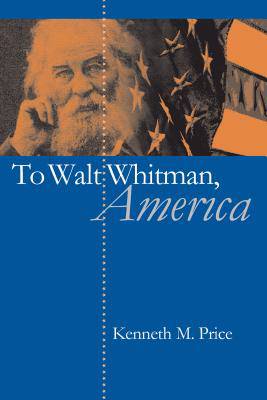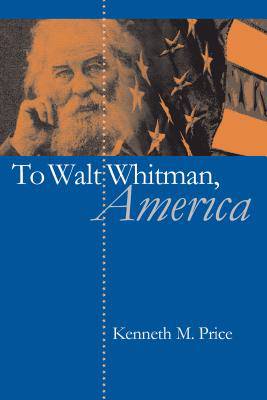
Bedankt voor het vertrouwen het afgelopen jaar! Om jou te bedanken bieden we GRATIS verzending (in België) aan op alles gedurende de hele maand januari.
- Afhalen na 1 uur in een winkel met voorraad
- In januari gratis thuislevering in België
- Ruim aanbod met 7 miljoen producten
Bedankt voor het vertrouwen het afgelopen jaar! Om jou te bedanken bieden we GRATIS verzending (in België) aan op alles gedurende de hele maand januari.
- Afhalen na 1 uur in een winkel met voorraad
- In januari gratis thuislevering in België
- Ruim aanbod met 7 miljoen producten
Zoeken
Omschrijving
Walt Whitman "is America," according to Ezra Pound. More than a century after his death, Whitman's name regularly appears in political speeches, architectural inscriptions, television programs, and films, and it adorns schools, summer camps, truck stops, corporate centers, and shopping malls. In an analysis of Whitman as a quintessential American icon, Kenneth Price shows how his ubiquity and his extraordinarily malleable identity have contributed to the ongoing process of shaping the character of the United States.
Price examines Whitman's own writings as well as those of writers who were influenced by him, paying particular attention to Whitman's legacies for an ethnically and sexually diverse America. He focuses on fictional works by Edith Wharton, D. H. Lawrence, John Dos Passos, Ishmael Reed, and Gloria Naylor, among others. In Price's study, Leaves of Grass emerges as a living document accruing meanings that evolve with time and with new readers, with Whitman and his words regularly pulled into debates over immigration, politics, sexuality, and national identity. As Price demonstrates, Whitman is a recurring starting point, a provocation, and an irresistible, rewritable text for those who reinvent the icon in their efforts to remake America itself.
Price examines Whitman's own writings as well as those of writers who were influenced by him, paying particular attention to Whitman's legacies for an ethnically and sexually diverse America. He focuses on fictional works by Edith Wharton, D. H. Lawrence, John Dos Passos, Ishmael Reed, and Gloria Naylor, among others. In Price's study, Leaves of Grass emerges as a living document accruing meanings that evolve with time and with new readers, with Whitman and his words regularly pulled into debates over immigration, politics, sexuality, and national identity. As Price demonstrates, Whitman is a recurring starting point, a provocation, and an irresistible, rewritable text for those who reinvent the icon in their efforts to remake America itself.
Specificaties
Betrokkenen
- Auteur(s):
- Uitgeverij:
Inhoud
- Aantal bladzijden:
- 182
- Taal:
- Engels
Eigenschappen
- Productcode (EAN):
- 9780807855188
- Verschijningsdatum:
- 29/03/2004
- Uitvoering:
- Paperback
- Formaat:
- Trade paperback (VS)
- Afmetingen:
- 148 mm x 230 mm
- Gewicht:
- 254 g

Alleen bij Standaard Boekhandel
+ 129 punten op je klantenkaart van Standaard Boekhandel
Beoordelingen
We publiceren alleen reviews die voldoen aan de voorwaarden voor reviews. Bekijk onze voorwaarden voor reviews.









